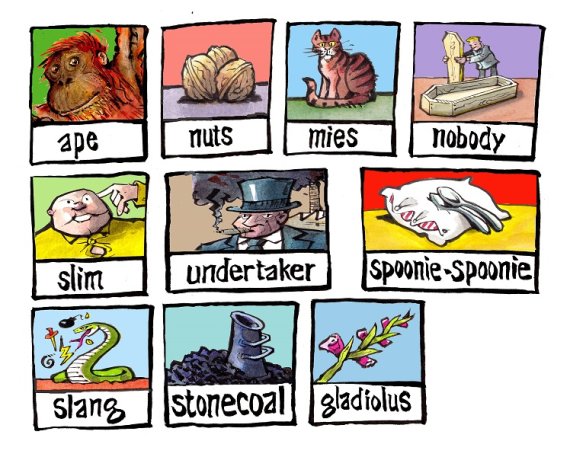Kris Deveria,
Minor student of International Land and Water Management, from Scotland

‘On a huge billboard by the roundabout, Wageningen proclaims itself to be a fantastic university. I am shocked, though, by the poor English of some teachers and of the course material they use. I think better course material could reduce stress among students and lead to higher grades. Teachers sometimes use Dutch words in class, too, often forgetting to translate them into English, especially when the majority of the students present are Dutch. Foreign students can feel inhibited to say something about that. Teachers should make more of an effort to include everyone. In general Wageningen University is doing very well, of course, and that includes the use of English. But that doesn’t mean there isn’t room for improvement.’
Tiny van Boekel, D
irector of education institute OWI, from the Netherlands

‘Overall, the average standard of English among the teachers is high. And it is certainly good enough for them to teach their subject. But it does vary. It is interesting that in the past teachers who are native speakers used to get more negative evaluations from students. Apparently they speak such fluent English that students can’t follow them. A little bit of ‘Dunglish’ is not such a bad thing. It is slow and clear. I don’t get many complaints about the command of English. And the executive board has decided to give everyone the chance to take a test, after which you can decide whether to take a refresher course. Language remains an issue that needs attention because you get the odd teacher who doesn’t speak English very well. But as a rule it’s good enough.’
Dominique Sinopoli,
PhD candidate and teacher in the Law and Governance chair group, from the US

‘In general the level of English is quite good. Sometimes I do see literal translations of Dutch that really don’t work in English. I recently heard ‘to hit two flies with one swap’. In this case there’s actually a similar expression in English, ‘to kill two birds with one stone’. Lecturers should be careful to not have information or images in Dutch on their slides. Sometimes it’s okay, for example if there was something relevant in the news and the lecturer wants to show the class, but then a translation should always be provided. The first time I taught here I actually received some low marks in the course evaluation for my English, even though I am a native speaker! I learned it was because I spoke too quickly and some students couldn’t understand me. Now I’m more careful and always try to speak more slowly and clearly.’
Bram Kerssemakers,
Student council member for VeSte, from the Netherlands

‘The standard of the teachers’ English is generally high. But we do occasionally hear that a course would have been better if the teacher had been more fluent in English. These are isolated cases but we do pass them on to the programme committee so that teachers can get support. The use of English is not constantly on the agenda of the student council. We look at the general trend of using English more. We want there to be enough opportunities for teachers to improve their English. We sometimes get complaints about the English of international students in group work. Some students really don’t speak English very well, but I think cultural differences are often a factor as well. Dutch and foreign students often have different ideas about group work.’
Nina Fieten,
Exchange student of Marine Biology, from the Netherlands
 ‘Here in Wageningen I think the teachers speak very good English. I’ve been studying here for two months now and nothing about the English has bothered me so far. At the University of Groningen (RUG)
‘Here in Wageningen I think the teachers speak very good English. I’ve been studying here for two months now and nothing about the English has bothered me so far. At the University of Groningen (RUG)
, where I am doing my Master’s, I sometimes see grammatical errors in presentations. And exam questions are not always well formulated. There are fewer international students at Groningen, so maybe that’s why the standard of English is lower. It does vary per course, though. In Groningen I take science courses. A lot of the science teachers are good researchers but are not so used to teaching, so their English is not always up to scratch. On the other hand, in class in Wageningen there are international students with poor English, and that is not something I’ve encountered in Groningen.’
Gerlo Borghuis,
Master’s student of International Land and Water Management, from the Netherlands

‘All the teachers in Wageningen speak English. They write academic articles in English and their presentations are free of errors. So overall I think the teachers’ English is good. Their pronunciation sometimes leaves something to be desired. You get some Louis van Gaal English: literal translations from the Dutch. But I don’t know how much of a problem that is. It does make it less easy to follow. Or it just makes you laugh and that’s distracting because you are more focused on the funny translation than on the subject of the class. I have sometimes mentioned a teacher’s so-so English in the online course evaluation.’
*Steenkolen engels, or Coal English refers to the broken English of Dutch dock workers communicating with sailors on English coal ships in the early 1900s.

